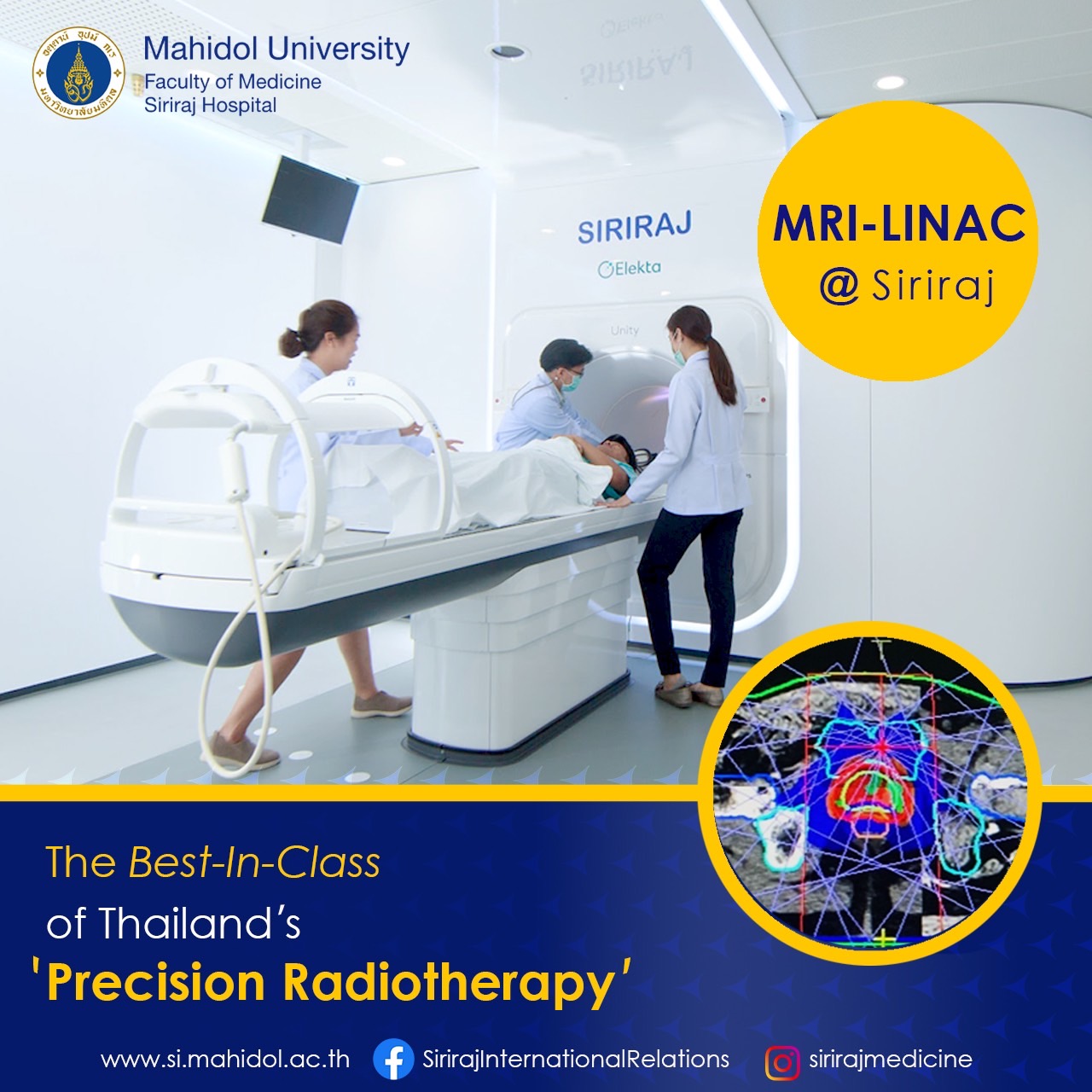The best-in-class of Thailand’s ‘Precision Radiotherapy
What is MRI-LINAC?
MRI-LINAC is a ground-breaking linear accelerator system equipped with a fully integrated diagnostic 1.5 Tesla MRI scanner. The cutting-edge technology of the fully integrated MRI with real-time on-board imaging is superior to CBCT for its precise localization of the tumor whereabouts, correction for internal target and organ motion, and adaptation for daily anatomical changes, such as respiratory motion, bowel gas movement, or bladder filling, enabling the most optimal radiation that destroys the tumor cells without damaging the surrounding normal tissue.
For moving tumor targets, the system combined with a computerized multi-leaf collimator, allows tracking of tumor targets for exceptionally accurate radiation delivery. Moreover, many common long-term complications from radiation could be avoided with this easy-to-use device, resulting in substantially higher quality of life for the patients after completion of treatment. To date, the MRI-LINAC is the best-in-class of the truly personalized real-time adaptive precision radiotherapy system in the world.
Siriraj Hospital – The First Hospital in Thailand to install MRI-LINAC
Faculty of Medicine Siriraj Hospital, Mahidol University, is the first in Southeast Asia and the only hospital in Thailand to install the UNITY® 1.5T MRI 7MV-Linear accelerator for clinical use in radiation therapy and research program in December 2019. More than 140 cases have been treated over a two-year period, the majority of which is prostate cancer. The survival rate is satisfactorily high, at 100 percent, with 98 percent biochemical control. The occurrence of acute and late radiation-induced genitourinary toxicity has been significantly decreased from approximately 10% to 3% and even lower for gastrointestinal toxicity, resulting in better quality of life of the patients.
The Efficiency of MRI-LINAC
Siriraj’s radiation oncology team expects that the MRI-LINAC will enhance and maximize tumor control to benefit cancer patients, for example, prostate cancer, bladder cancer, gynecologic malignancy, and head and neck cancer. Many studies employing this approach are currently underway to explore better possible solutions for many conditions, and we are certain that we will be able to offer a new chapter in cancer treatment, which is precision cancer radiotherapy, to serve Thai patients as well as those in the ASEAN region.
—



